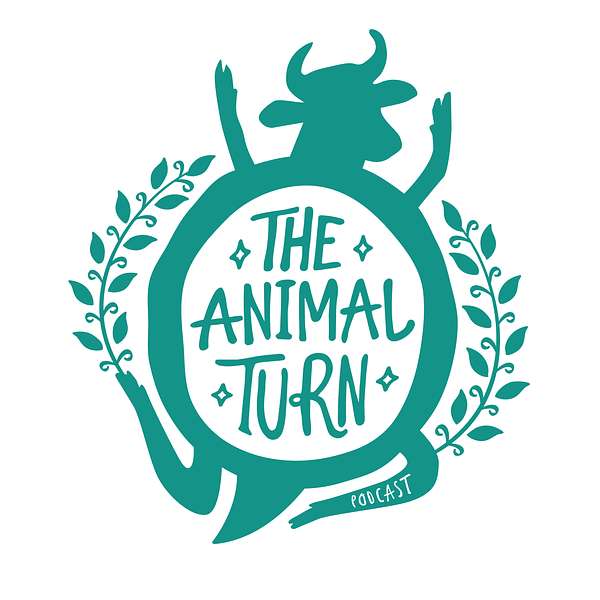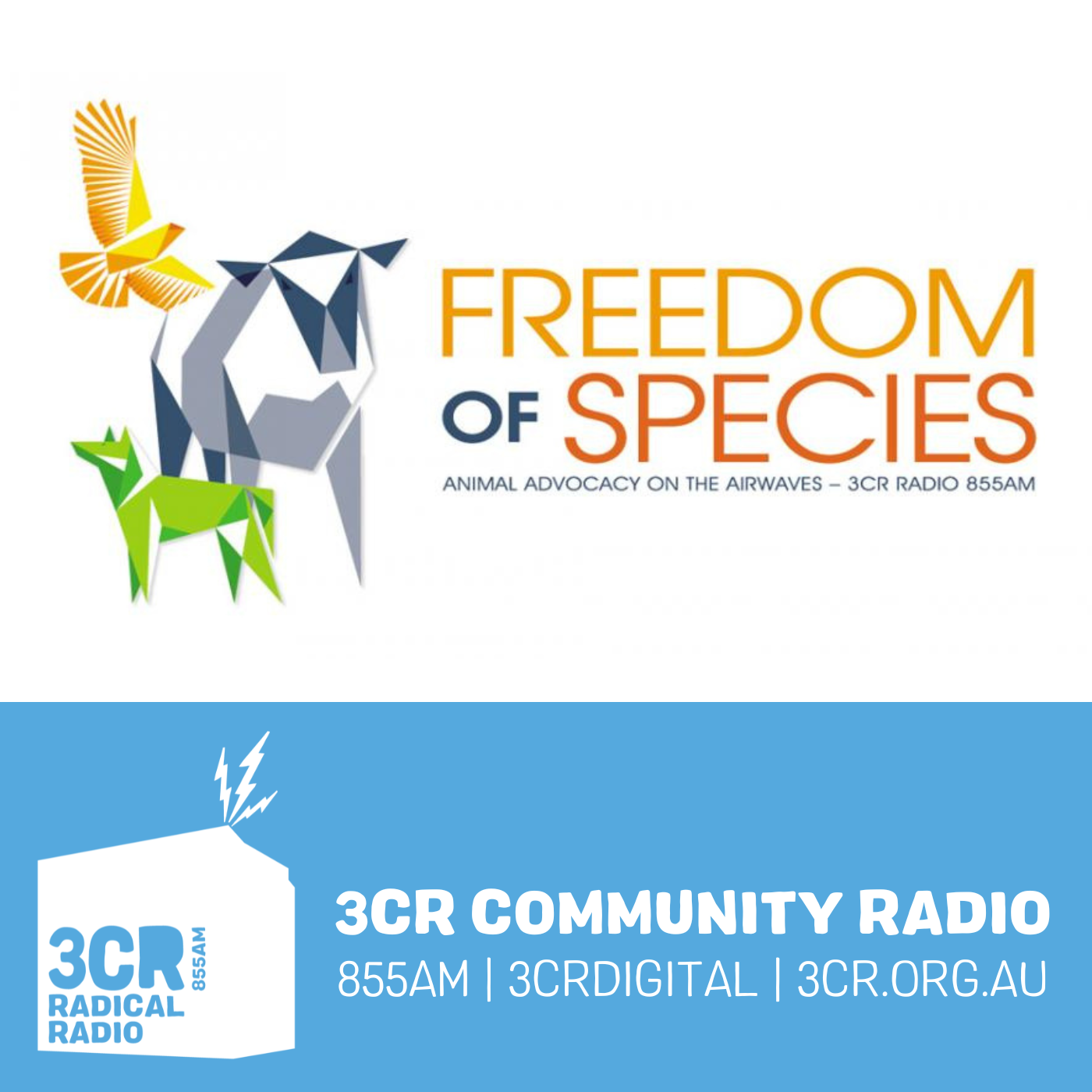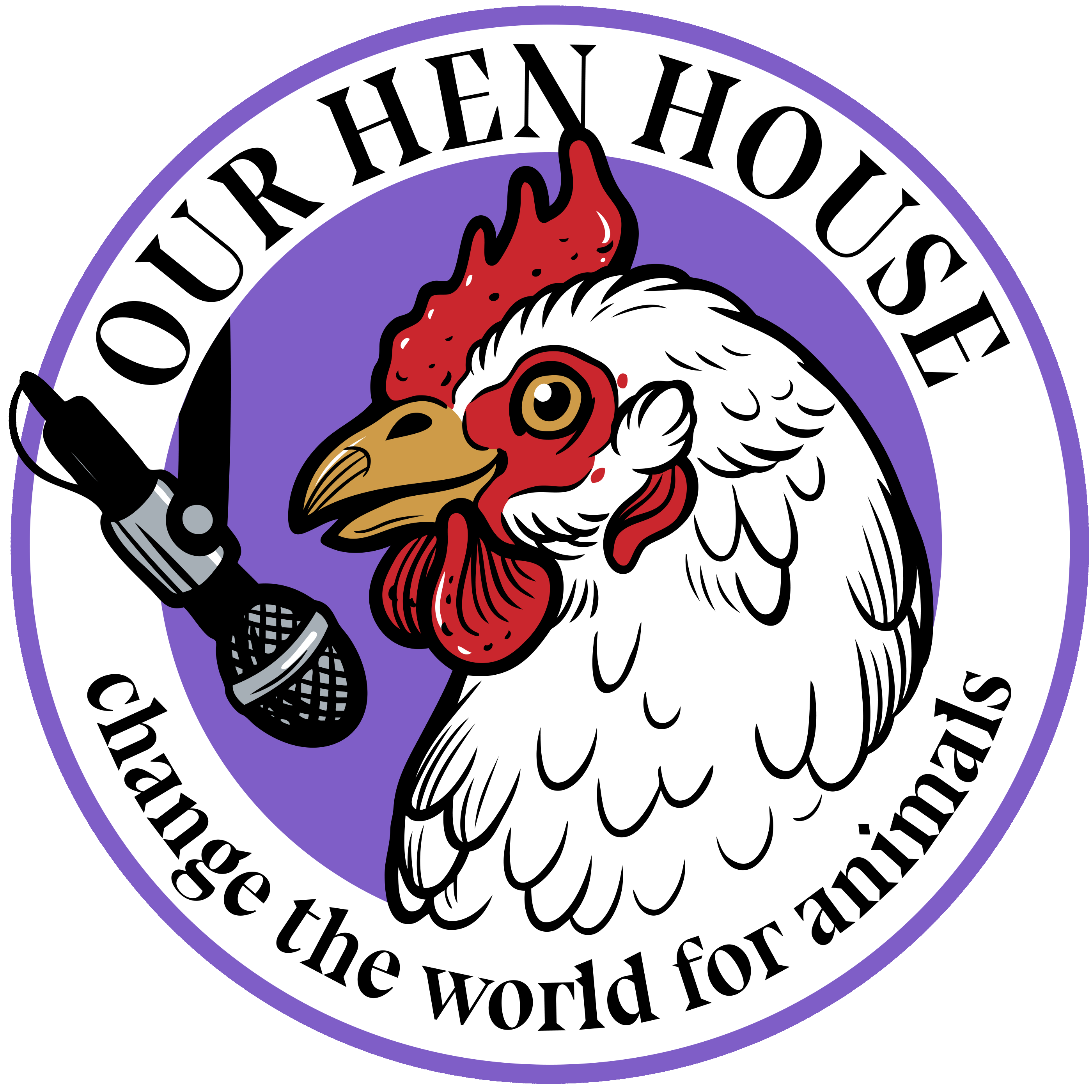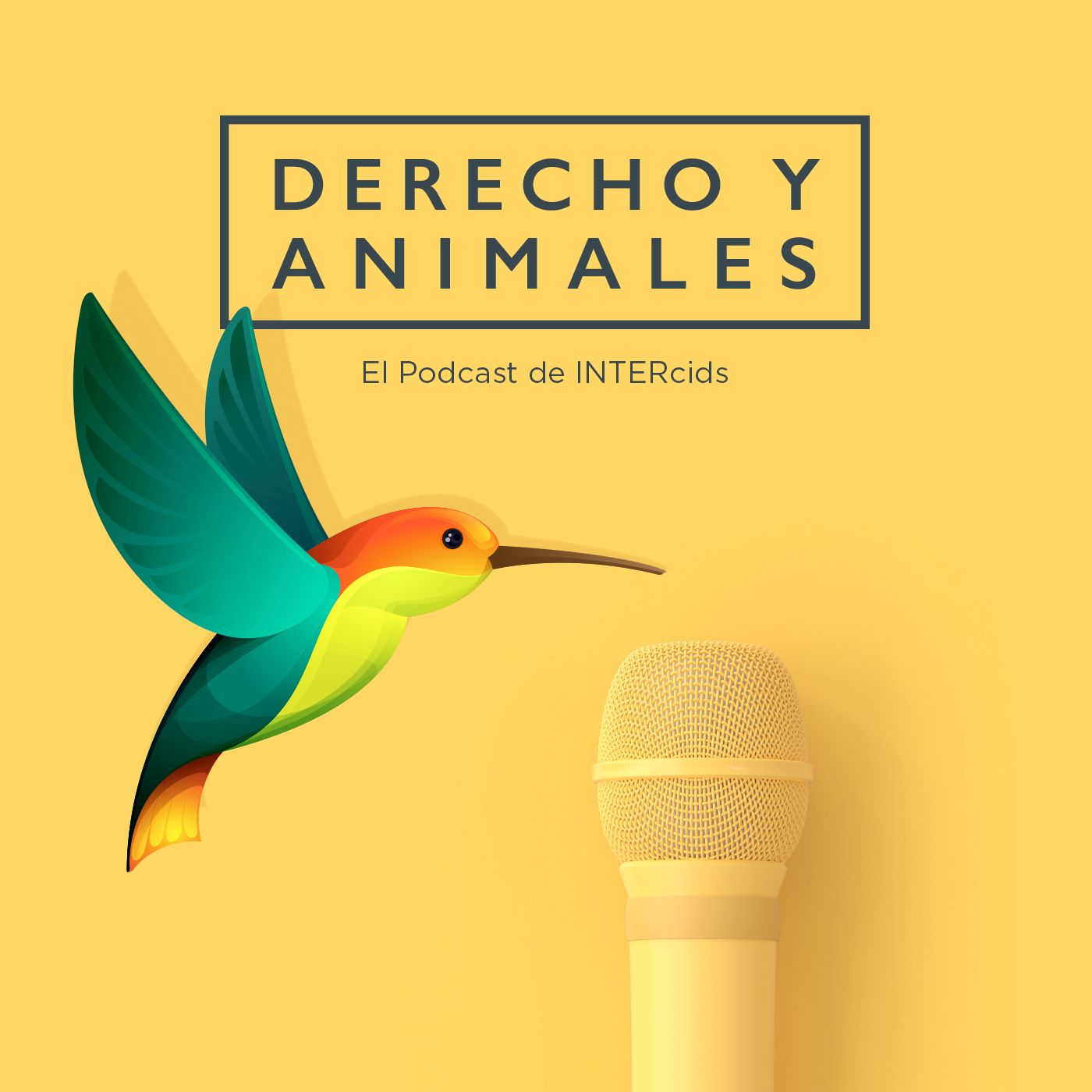
The Animal Turn
Animals are increasingly at the forefront of research questions – Not as shadows to human stories, or as beings we want to understand biologically, or for purely our benefit – but as beings who have histories, stories, and geographies of their own. Each season is set around themes with each episode unpacking a particular animal turn concept and its significance therein. Join Claudia Hirtenfelder as she delves into some of the most important ideas emerging out of this recent turn in scholarship, thinking, and being.
The Animal Turn
Bonus: Wonder (dog) with Jules Howard
Claudia discusses wonder with Jules Howard, author of the book Wonderdog. Using his book a backdrop, they discuss how dogs have influenced (and been influenced) by science. Topics include everything from evolution, to love and responsibility. Ultimately they marvel at how much there is we still don’t know about the creatures we share the world with.
Date Recorded: 31 March 2023.
Jules Howard is a UK-based zoological correspondent, science writer and broadcaster who writes for the Guardian, BBC Wildlife and Science Focus. His latest book ‘Wonderdog The Science of Dogs and Their Unique Friendship With Humans’ came out in November 2022. He has appeared regularly on TV and radio shows, including Good Morning Britain, BBC Newsround, BBC Breakfast and BBC Radio 4. Find out more about Jules on his website or connect with him on Twitter.
Claudia (Towne) Hirtenfelder is the founder and host of The Animal Turn. She is a PhD Candidate in Geography and Planning at Queen’s University and is currently undertaking her own research project looking at the geographical and historical relationships between animals (specifically cows) and cities. She was awarded the AASA Award for Popular Communication for her work on the podcast. Contact Claudia via email (info@theanimalturnpodcast.com) or follow her on Twitter (@ClaudiaFTowne).
Featured:
- ‘Wonderdog The Science of Dogs and Their Unique Friendship With Humans’ by Jules Howard.
- Sex on Earth: A Celebration of Animal Reproduction by Jules Howard
- Death on Earth: Adventures in Evolution and Mortality by Jules Howard
- Inside of a Dog: What Dogs See, Smell, and Know by Alexander Horowitz.
- Genetics and the Social Behaviour of the Dog by John Paul Scott and John L. Fuller.
This episode was edited by Christiaan Menz and produced by the host Claudia Towne Hirtenfelder
Living Limitless PodcastBreak free from the ordinary - explore bold ideas, big dreams, and the path to Limitless!
Listen on: Apple Podcasts Spotify
The Animal Turn is hosted and produced by Claudia Hirtenfelder and is part of the iROAR Network. It can also be found on A.P.P.L.E, Twitter, LinkedIn, You Tube, and Instagram Learn more about the show on our website.
00:00 - Introduction
- Welcome
- Some bonus content while between seasons and while Claudia finishes her thesis.
- Today’s guest is Jules Howard and we are going to talk about his book Wonderdog.
- Conversation centered on the concept on wonder, awe might take us out of the issues we face today.
- Thank you to Animals in Philosophy, Politics, Law and Ethics for sponsoring this podcast
03:00 – Welcome and a bit about Jules
- Claudia always says she is excited!
- Wonderdog is hot off the press.
- Going to talk a bit about wonder today
- Jules was always interested in evolution and wanted to work with animals.
- A zoology generalist and loves writing
06:57 – What is zoology?
- The science of animal life which includes genetics, animal behaviour and taxonomy – it can also include ecology.
- A lot of people used to be attached to animal behaviour and what it is like to be an animal.
- Involves lab and field work.
- Historically involved more dissection and there were some violent aspects to that and the culture is changing.
11:42 – Science Communication and Education
- Jules came out of university with his mind blown about evolution and wanted to communicate the magic of science
- Drew comics when he was young and wants to explore animals creativity and what it opens up.
- Audiences don’t always take things the way you expect
- Saying things simply is an art
15:37 – What was your goal with Wonderdog?
- It’s not a book about the science about dogs mind, other scholars like Alexandra Horowitz have done that
- Wanted to talk about the history of animal cognition and how it has changed in the last 150 years – and dogs are great characters to tell that story.
- Individual dogs do inspire questions in the science spaces they inhabit – the dogs were the way in to understanding more about animal minds.
- Being around animals can inspire particular questions
- Each chapter builds on one another
18:54 – Nature versus Nature
- Darwin believed we differed cognitively by degree.
- Pavlov was much more laboratory based and believed that the body was responsive to positive and negative experiences.
- B.F Skinner was a behaviourist and in essence the idea was that the mind was a blank slate
- “There was no room for nature at all,” Jules.
- But when we start to get a better idea of genetics we start to understand dogs as a blend of nature and nurture.
- It took a long time to get to a place where we appreciate that we are a blend of nature versus nurture.
22:10 – Violence
- Pavolv had many dogs who he was conducting experimenting on and they were pretty violent.
- A lot of the endnotes include some of the gory details.
- Pavolv was interested in long term studies, so he kept dogs alive for as long as possible.
- The scientists who discovered homeostasis came to this realisation by putting dogs in ovens but no one is teaching how we know this information.
- Maybe giving the impression that there has been a linear progression of scientific experiments and that no scientists are doing awful things to dogs anymore
- In the U.K there are at least 4,000 dogs a year who are operated on for research.
28:00 – Scott and Fuller
- Both seen two world wars and believed that bad people aren’t born bad, so they wanted to see how earl puppy experiences impacted dogs.
- When you talk about socialisation it is direct result of this 1960 study
- “It was obviously that a badly treated puppy…would end up as a dog with mental health problems,” Jules Howard
- Gave ammo to the anti-vivisectionist movement.
- Important American geneticist went through those facilities to learn.
- “There are human characters and dog characters that we owe a debt too,” Jules.
31:40 – Play
- Play comes out when animal appear to be relaxed, it is a sign of a healthy animal.
- Not sure why play evolves but it clearly allows animals to simulate experiences.
- Modern day dogs are very much companions to science.
- “Modern day dogs in science are very much companions to science,” Jules.
- All of us can see how intelligence dogs are by jut going to a park.
- Alexandra Horowitz went to park to watch how dogs play.
- People were trying to find theory of mind with chimps and not realising their dogs showed them the way
- “a beautiful expression,” Jules.
- Cognitively aware of bodies across species
- “Play is an expression of good,” Claudia.
- Adults don’t imagine a much for fun anymore but maybe we are doing that when we play with ideas.
39:00 – Love
- “Do our dogs love us?”
- There is a love tone, “a safe knowing of one another,” Claudia.
- “Love mean different things to different people,” Jules.
- There are 5 or 6 methodologies to infer what is going on inside a dogs’ brain.
- The argument that dogs feel love is just so strong.
- The idea of a dog sitting alone in a house for fifteen years is awful.
- Dogs going into MRI’s was a good example of how positive reinforcement can be used.
- The idea of attachment is used with animals instead of love and “it risks belittling the emotions of non-human animals,” Jules.
45:00 – Grief
- Do dogs experience grief when their owners die or go away?
- Melding social and physical sciences here is important, “there I probably enough evidence from just observing them that their behaviours change,” Claudia.
- “We hold different standards with regards to different animals to prove what they’re feeling,” Claudia.
- We need to go beyond the idea of “oh, he’s just a dog!” Claudia
- Hopefully that will spread to “how we appreciate mammals and other animals in general,” Jules.
- Linus is four and from a shelter and he was greatly impacted by neglect
- “He’s a good person in our lives,” Claudia
- They are people and family members but it’s “a beautiful horror” because they age so much faster – Jules.
49:50 – A Big Responsibility
- We have to make sure it is a rich life for our dogs.
- “It’s your responsibility to make sure it’s a good life,” Claudia.
- People need to be made aware of how big a responsibility it is.
- Oz and Linus know where their people are and what their routines are.
- “You are literally the center of someone’s world,” Jules.
- It’s a privilege to be that important to someone.
- Buying and breeding are hurting dogs.
54:19 – Quote (T.H. Huxley, Darwin’s Bulldog)
- “The known is finite, the unknown infinite; intellectually we stand on an islet in the midst of an illimitable ocean of inexplicability. Our business in every generation is to reclaim a little more land.”
- There is so much we still don’t know and there is so much wonder in our backyards.
- Slugs and little white mites. Most slugs have these mites living upon them and only one paper had been written about slug mite sex.
- It is a matter of perspective and questions – “we really are tossing stones into the ocean,” Jules.
- Every generation has the opportunity to contribute.
59:40 – What are you working on next?
- A book about life cycles and museums for kids
- A book about eggs for adults – “the secret pre-history of life.”
- These books are not big earners and it’s a ruthless industry but its about expressing your interests.
01:02:56 – Thank yous
- Thank you.




















